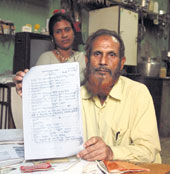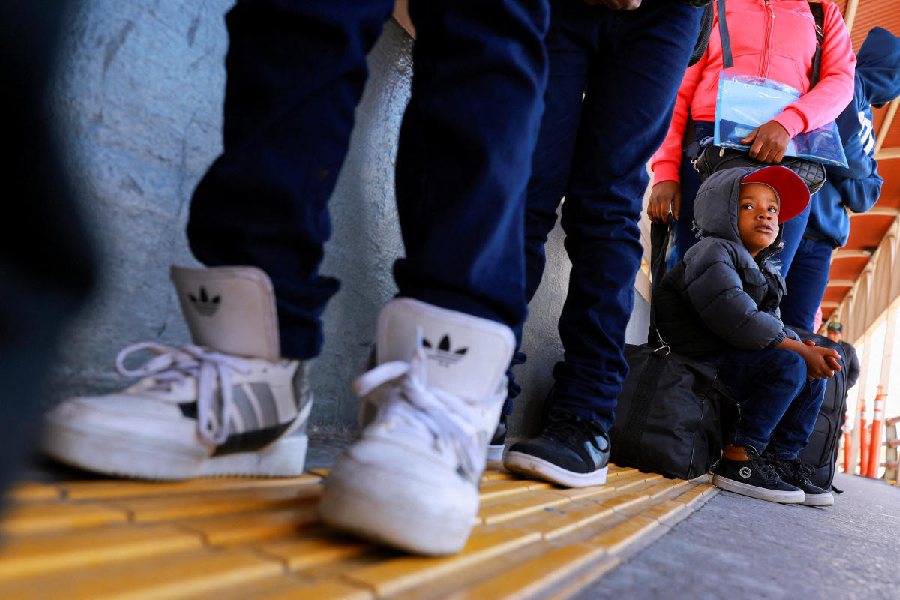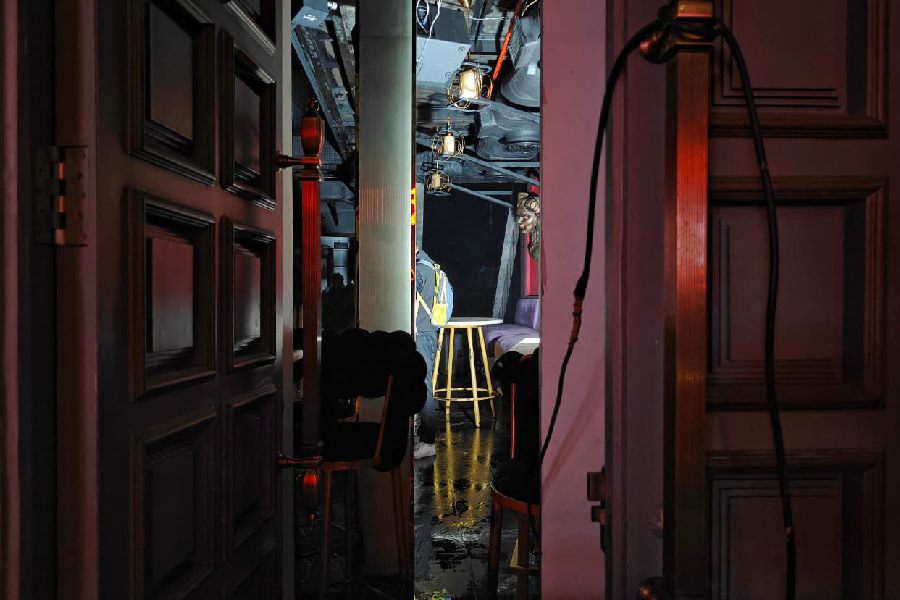 |
 |
 |
| IDENTITY CRISIS: S.M.A. Raouf and his wife were rounded up by the police and declared aliens; proof of identity Photos: Gajanan Dudhalkar |
S.M.A. Raouf rubs his eyes. For a man who speaks eloquently, he is a loser. He symbolises the new pariah, the Muslim from West Bengal who might soon lose 60 years of his life. The Mumbai police is planning to deport him, his 45-year-old wife Jameela Khatoun and their three teenage children to Bangladesh. The Raouf family is terrified, helpless spectators of a political game played by security agencies in the border areas, the Indian government, political parties and the state police.
On August 9, 2005, a midnight knock changed the lives of the Raoufs, who live in a chawl near an open drain in Govandi, a north-eastern suburb of Mumbai. The visitors were men in uniform from the Mumbai police’s Special Branch-I. The police didn’t ask any questions, but declared the Raoufs were aliens and pushed the family into a van. The next morning they were produced in the 100-year-old Esplanade court in south Mumbai. Pending trial, they were put in different prisons in Mumbai while the youngest, 16-year-old Noor Islam, was lodged ? and beaten up ? in a state remand home in Dongri, south Mumbai. “I cried a lot for the first few months. I had never lived without my family and the remand home is very dismal and frightening,” says Noor Islam.
The move against the Raoufs was not just an arbitrary act by a section of the Mumbai police but a policy of the Maharashtra government that looks at most slum-dwelling Muslims as illegal immigrants. It’s an old bias, fuelled by political efforts aimed at garnering electoral support by targeting people as outsiders. In the Sixties, the Shiv Sena had its lungi bhagao, pungi bhajao campaign directed at south Indians, which was followed by drives against Muslims.
The Shiv Sena had promised that once it came to power, it would drive every Bangladeshi out of Mumbai. The Congress government, now in power, hopes to emulate the Sena. In 2004, 626 Bangladeshis were arrested and 507 deported. In 2005, 570 people were detained and 805 deported. What worries activists is that Indian citizens may be buried in the statistics.
Sujata Gotuskar, an activist who works with women’s organisations, puts it in perspective, “The situation in Mumbai and its suburbs and neighbouring districts is such that if there are two women ? one a Maharashtrian and the other a Muslim from West Bengal, Tripura,Orissa or Bihar ? and if neither possesses a birth certificate, there is no question of the Maharashtrian woman being questioned about her Indian identity. But the other woman is automatically put in the category of a suspect.”
The jails and remand homes in Mumbai and neighbhouring Thane are filled with Bangladeshis and Indian Muslims accused of being Bangladeshis. Scores of mothers camp outside the remand homes for a glimpse of their sons. A mother travels 70 km every day from Mumbai to the Bhiwandi Remand Home on the outskirts of Kalyan, hoping to take her 11-year-old son back home.
“The story of these children of a lesser God is also the story of thousands of poor Indian citizens harassed in xenophobic metros like Delhi and Mumbai which have been seized by the anti-Bangladeshi wave,” says Mumbai lawyer and activist Shakil Ahmed. “They are Indian citizens but happen to be Muslims and because of their facial similarities with the Bangladeshis and their heavy Bengali accent, stand out like a sore thumb in the metropolises. Generally they also have the misfortune of having Bangladeshi immigrants as their neighbours so they get pulled into the maelstrom,” he says.
Most Indian Muslims simply put up with the police drives as a part of their destiny. Rehana Khan Sultan (not her real name) has been deported thrice and has survived to tell her story. The 45-year-old has lived on the footpaths of Wadi Bunder in south Mumbai all her life and cannot think of any other place as her home. These days she simply pays off the cop before he makes out a case. “I have all the valid documents but nothing works either with the cops or the courts,” she says.
Jameela discovered as much during her time in jail. The three Raouf boys were born in Mumbai and had their birth certificates, but the court wanted proof of their parents’ Indianness. When Jameela showed her ration card in court, the judge said, “Yeh to kahin bhi milta hain (You can get this anywhere)”.
For six months the family kept gathering more proof and lived on nothing but hope. They begged and borrowed money on huge interest from neighbours who came to visit them. And finally they managed to scrape enough for a bail.
One month after the parents were released, the children were out. Jameela still remembers the moment. “It was as if God had just smiled on us,” she says. But this was after the family had been all but destroyed. The eldest son, Ashraf, was working for ICICI and doing his graduation from a night college when he was rounded up. He lost his job. His brother, Haroon Rashid, lost his job as an airconditioning mechanic. And Noor, who had just enrolled in a college, was struck off the rolls as he was absent for six months.
Still, the Raoufs were lucky, because unlike other deportees, they have ? so far, at least ? not been whisked off in a train to the Bangladesh border. This is where the police hands over alleged immigrants to the Border Security Force which, in turn, pushes them into the no-man’s land. Bangladesh does not accept them as their own and soldiers of the Bangladeshi Rifles train their guns on any such incursion.
The Mumbai police, meanwhile, says it is going to continue with its drive. Says Archana Tyagi, superintendent of police, Thane Rural Police, “You have to be relentless. The frequent drives in the form of night raids will put psychological pressure.” And the Jameelas of this land will never sleep easy.











